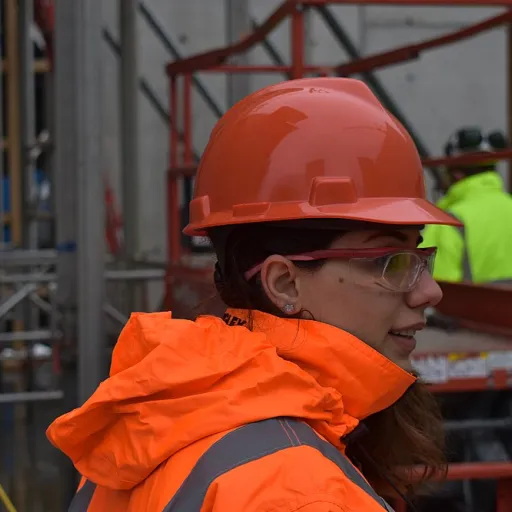
Understanding candidate experience: why every interaction matters
Candidate experience is the sum of every interaction a candidate has with a company during the hiring process. From the first moment a job seeker reads a job description to the final feedback after interviews, each step shapes their perception of the employer brand. Positive candidate experiences are proven to increase acceptance rates and foster lasting relationships, while negative candidate experiences can harm the company’s reputation and deter future applicants.
In today’s competitive recruitment landscape, candidates expect transparency, timely feedback, and respect throughout the recruitment process. The application process is often the first touchpoint, and a streamlined, user-friendly system sets the tone for the rest of the hiring journey. Companies that prioritize a positive candidate experience not only attract top talent but also strengthen their employer brand and improve their overall recruitment process.
Research shows that 35% of candidates share negative application experiences publicly, amplifying the impact of poor candidate experiences through social media and professional networks. This highlights the importance of a thoughtful interview process, clear job descriptions, and consistent communication. Candidates will remember how they were treated, and their feedback can influence other job seekers considering the company.
Organizations are now leveraging technology to enhance the candidate experience, using AI to personalize communication and streamline the recruitment process. The best candidate experience examples demonstrate that every detail, from the clarity of job descriptions to the tone of interview questions, contributes to a positive or negative candidate journey. Companies that invest in these areas see measurable improvements in candidate satisfaction and employer brand perception.
Personalized communication and transparency: the Airbnb approach
Airbnb is recognized for its commitment to personalized communication and transparency throughout the hiring process. Candidates receive tailored updates at every stage, ensuring they feel valued and informed. This approach extends to the interview process, where candidates are provided with detailed information about what to expect, including the types of questions and the structure of interviews.
Transparency is further reinforced by offering feedback to candidates, regardless of the outcome. This practice not only helps candidates improve but also strengthens the relationship between the company and job seekers. Airbnb’s strategy reflects a deep respect for candidates, making the experience memorable and fostering a positive candidate perception of the company.
Personalized communication is a trend that continues to shape the recruitment process. Candidates will appreciate when companies take the time to address their unique backgrounds and aspirations. This is especially important in virtual interviews, where personal touches can make a significant difference in the overall experience candidate journey.
For more insights into how leading organizations enhance their recruitment process, explore this comprehensive guide to candidate experience best practices. By prioritizing transparency and communication, companies can ensure that candidates have a positive experience, regardless of the final hiring decision.
Culture fit and objective assessments: lessons from Zappos and Slack
Zappos and Slack offer compelling candidate experience examples through their unique approaches to culture fit and objective assessments. Zappos integrates a culture fit assessment into its recruitment process, ensuring that candidates align with the company’s core values. This not only enhances the experience for candidates but also leads to higher employee satisfaction and retention.
Slack, on the other hand, employs objective assessments that remove personal identifiers from the application process. This strategy eliminates bias and promotes diversity, ensuring that candidates are evaluated solely on their skills and abilities. Such practices are essential for creating a fair and inclusive hiring process, which is increasingly important for job seekers today.
Both companies demonstrate that a positive candidate experience is not just about making candidates feel good but about building a recruitment process that is equitable and aligned with the company’s values. Team members play a crucial role in this, as their involvement in interviews and feedback sessions shapes the overall experience candidate journey.
For a deeper dive into how culture fit and unbiased assessments can transform your recruitment process, visit this resource on innovative hiring strategies. By adopting these methods, companies can ensure that candidates will have a positive experience and that the best talent is selected for the job.
Feedback and engagement: DigitalOcean and Children’s Mercy Hospital
DigitalOcean and Children’s Mercy Hospital provide standout candidate experience examples by prioritizing feedback and engagement. DigitalOcean ensures that candidates receive clear communication about the application process and timely feedback after interviews. This transparency builds trust and encourages candidates to view the company positively, even if they are not selected for the job.
Children’s Mercy Hospital takes engagement a step further with its ‘Introduce Yourself’ program. Candidates are invited to record short video interviews, responding to questions posed by children. This innovative approach not only personalizes the interview process but also reinforces the hospital’s mission and values. As a result, the company has seen a 20% increase in diversity among employees, demonstrating the impact of a positive candidate experience on recruitment outcomes.
Feedback is a critical component of the hiring process. Candidates will remember whether they received constructive input or were left in the dark. Experience surveys and follow-up communications help companies gather insights and continuously improve their recruitment process, ensuring that future candidates have an even better experience. By focusing on these areas, companies can create a positive candidate journey that benefits both job seekers and the organization.
The role of technology and virtual interviews in modern recruitment
The integration of technology has revolutionized the candidate experience, particularly through the use of virtual interviews and AI-driven recruitment tools. Companies are now able to streamline the application process, making it easier for candidates to apply and track their progress. Virtual interviews offer flexibility and convenience, allowing candidates to participate from anywhere and reducing time-to-hire for employers.
AI-powered platforms can personalize communication, automate scheduling, and provide real-time feedback to candidates. This not only enhances the experience for candidates but also improves the efficiency of the recruitment process. The use of technology ensures that candidates will receive timely updates and that the hiring process remains consistent and fair.
However, technology must be used thoughtfully to avoid creating a cold or impersonal experience. Companies should balance automation with human interaction, ensuring that candidates feel supported and valued throughout the process. Virtual interviews should be designed to replicate real work scenarios and allow candidates to showcase their skills effectively.
As the recruitment landscape continues to evolve, companies that embrace technology while maintaining a human touch will set the standard for positive candidate experiences. The best candidate experience examples demonstrate how technology can enhance, rather than replace, meaningful interactions between candidates and employers.
Measuring and improving candidate experience: surveys and feedback loops
Measuring candidate experience is essential for continuous improvement in the recruitment process. Experience surveys are a valuable tool for gathering feedback from candidates at various stages, from the initial application to post-interview reflections. These surveys help companies identify strengths and areas for improvement in their hiring process.
Feedback loops ensure that insights from candidate experiences are acted upon, leading to tangible changes in the recruitment process. Companies that regularly review survey results and implement adjustments demonstrate a commitment to providing a positive candidate journey. This proactive approach not only benefits future candidates but also enhances the employer brand.
Negative candidate experiences can have far-reaching consequences, as dissatisfied candidates may share their stories on social media or with other job seekers. By addressing feedback promptly and transparently, companies can turn a poor candidate experience into an opportunity for growth and improvement. Candidates will appreciate when their voices are heard and their suggestions are implemented.
Experience surveys should be concise, relevant, and easy to complete. Questions should cover all aspects of the recruitment process, including the clarity of job descriptions, the fairness of interviews, and the responsiveness of the hiring team. The goal is to create a feedback-rich environment where candidates positive and negative experiences are valued equally.
Building a strong employer brand through positive candidate experiences
A strong employer brand is built on the foundation of positive candidate experiences. Every interaction, from the initial job description to the final feedback, contributes to how candidates perceive the company. Companies that consistently deliver a positive experience candidate journey are more likely to attract top talent and retain high-performing employees.
Social media amplifies the impact of candidate experiences, as job seekers share their stories with a wide audience. Positive candidate experiences enhance the company’s reputation, while negative candidate experiences can deter potential applicants. Employer brand is closely tied to the recruitment process, making it essential for companies to invest in strategies that prioritize candidate satisfaction.
Team members play a crucial role in shaping the candidate experience. Their professionalism, empathy, and communication skills influence how candidates feel about the company and the hiring process. Companies should provide training and resources to ensure that all team members are equipped to deliver a positive candidate journey.
As Landon Cortenbach stated, "Creating a memorable and positive candidate experience is essential for attracting and retaining top talent." Elyse Mayer adds, "It takes pushing beyond the status quo and really taking a cold, hard look in the mirror at where your gaps are." These expert insights underscore the importance of continuously evaluating and improving the candidate experience to maintain a strong employer brand.
Key statistics on candidate experience
- 35% of candidates share negative application experiences publicly.
- Companies implementing unique hiring practices have seen a 20% increase in diversity rank among employees.
Frequently asked questions about candidate experience examples
What are the most effective ways to improve candidate experience?
Effective ways to improve candidate experience include providing clear job descriptions, maintaining transparent communication, offering timely feedback, and ensuring a fair and inclusive interview process. Leveraging technology for virtual interviews and personalized updates can also enhance the recruitment process. Regularly collecting and acting on feedback through experience surveys helps companies continuously refine their approach.
How does candidate experience impact employer brand?
Candidate experience directly influences employer brand by shaping how job seekers perceive the company. Positive candidate experiences lead to higher acceptance rates, stronger referrals, and a more attractive reputation among job seekers. Conversely, negative candidate experiences can damage the employer brand and deter top talent from applying.













